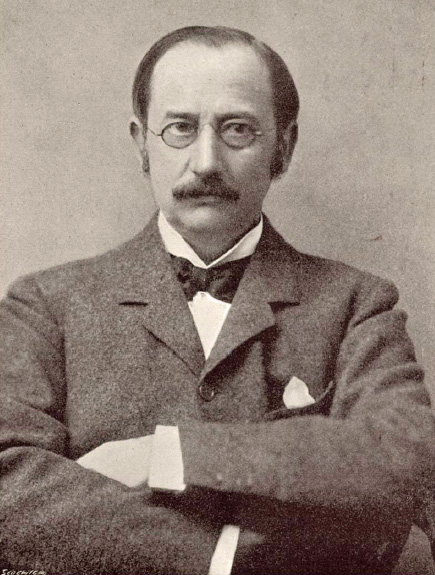
I don’t want to be morbid, so blame Dan Coleman, who, commenting on part 1 of “Darwin’s Pallbearers,” asked, “Will you also include the anthem that was specially commissioned and written for his funeral?” Well, okay. In the account of Darwin’s April 26, 1882, funeral that appeared in the Times of London, it’s described thus:
… an anthem composed for the occasion by Mr. Bridge was sung to the words from the Book of Proverbs, “Happy is the man that findeth wisdom[,] and getteth understanding. She is more precious than rubies, and all the things thou canst desire are not to be compared unto her. Length of days is in her right hand, and in her left hand riches and honour. Her ways are ways of pleasantness, and all her paths are peace.” The soft and subdued ending of the composition, which was sung with much feeling by the choir, prepared the mind for the last sad duty that remained to be performed.
The quoted text, as promised, is from Proverbs 3, verses 13, 15, 16, and 17. (Missing is verse 14—“For the merchandise of it is better than the merchandise of silver, and the gain thereof than fine gold”—as well as a few words from verse 13: “and the man that” is usually included after “wisdom.”)
The composer was J. (for John) Frederick Bridge (1844–1924; above). The deputy organist at Westminster Abbey, he became the organist and master of the choristers later in 1882, retiring in 1918. A prolific composer and writer on musical topics, he was later also a professor of music at Gresham College and at the University of London.
Judging from his autobiography, A Westminster Pilgrim (1919), the commission and the performance were all in a day’s work for Bridge. All he wrote about it there was:
On April 27th [sic], 1882, the funeral of Charles Darwin took place in the Abbey. It seemed to me the ordinary funeral anthems were hardly appropriate to Darwin, so I ventured to suggest the words which I afterwards set to music (Proverbs iii., 13, 15, 16, 17) … This anthem was beautifully sung by the choir, and Canon Prothero called to congratulate me on its success immediately after the service.
If you were wondering, George Prothero (1818–1894) was in charge of Westminster Abbey while the Dean, George Granville Bradley (1821–1903), was out of the country.
It really was in a day’s work for Bridge, though. He composed the music for the 1889 funeral of Robert Browning (a setting of a poem of Elizabeth Barrett Browning’s) and for the 1892 funeral of Alfred, Lord Tennyson (a setting of “Crossing the Bar”). Both men are buried in Poets’ Corner in Westminster Abbey.
Coleman also asked, “[P]erhaps there is a version to which one can listen?” I couldn’t find any recordings on YouTube of Bridge’s anthem for Darwin, although there are any number of performances of Bridge’s “The Goslings”—a supposedly humorous song about a pair of courting geese who end up served on a dish together.
You might think that your only recourse is to wait for a famous biologist to die. For according to Ullica Segerstrale’s Nature’s Oracle: The Life and Work of W. D. Hamilton (2013), Bridge’s anthem was performed at a memorial service for Hamilton, organized by Richard Dawkins in the chapel of New College, Oxford.
Not so. At Dawkins’s behest, the music, scored for soprano, alto, tenor, bass, and organ, is included in the front matter of the second volume (on the evolution of sex) of Hamilton’s collected papers, Narrow Roads of Gene Land (2002). So if you have the requisite choristers and organ on hand—as well as the book—you’re in business.
Maybe it wouldn’t be worth it, though. In Tuneful Accords: The Church Musicians (2009), by Trevor Beeson, a former Dean of Winchester, judges, “Bridge composed a great deal of music, often for special services in the Abbey, but he was not a gifted composer and hardly any of his work remains in use.”
Still, at least one famous biologist other than Dawkins is a fan of the anthem. In Rocks of Ages: Science and Religion in the Fullness of Life (1999), Stephen Jay Gould described Bridge’s anthem in passing as “a perfectly serviceable piece of music, which I have actively enjoyed under another hat as a choral singer.”
After quoting Bridge’s adaptation from Proverbs, Gould added, with his customary acuity, “I only wish that Mr. Bridge had added the very next line (Proverbs 3:18)—the even more famous wisdom text that also happens to serve as the standard metaphor for evolution as well!” Namely: “She is a tree of life to them that lay hold upon her.”

